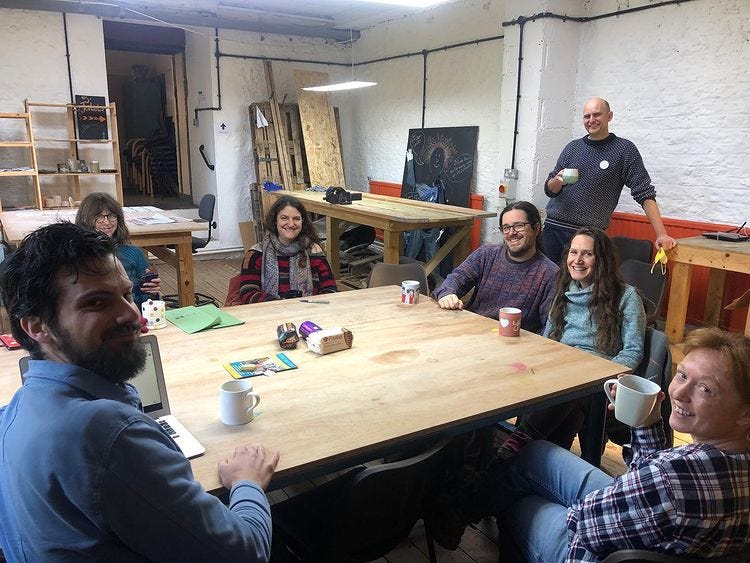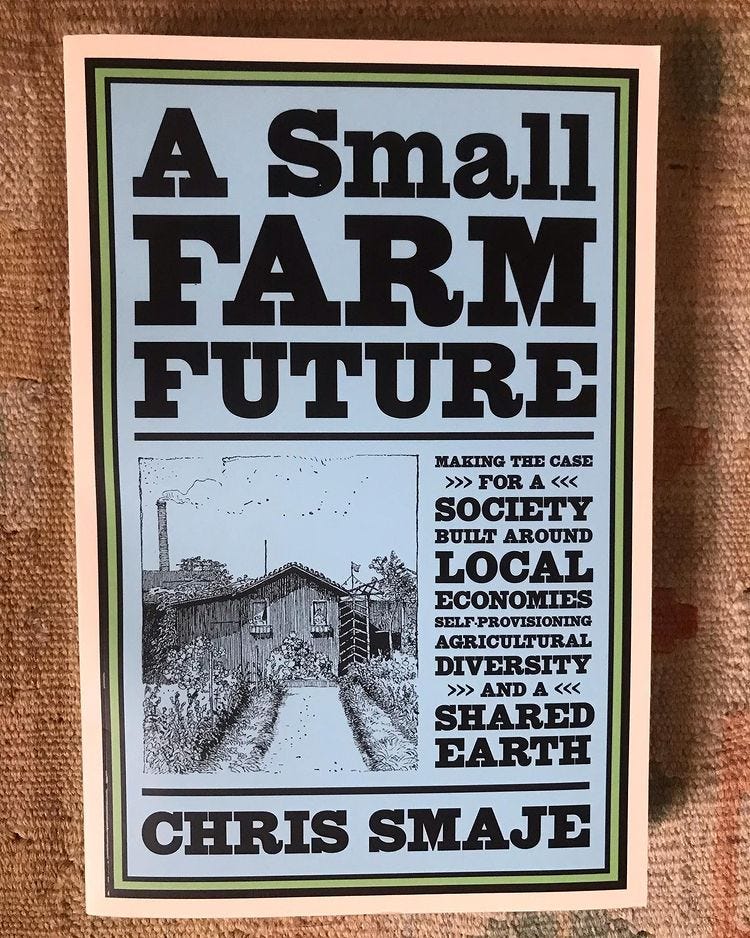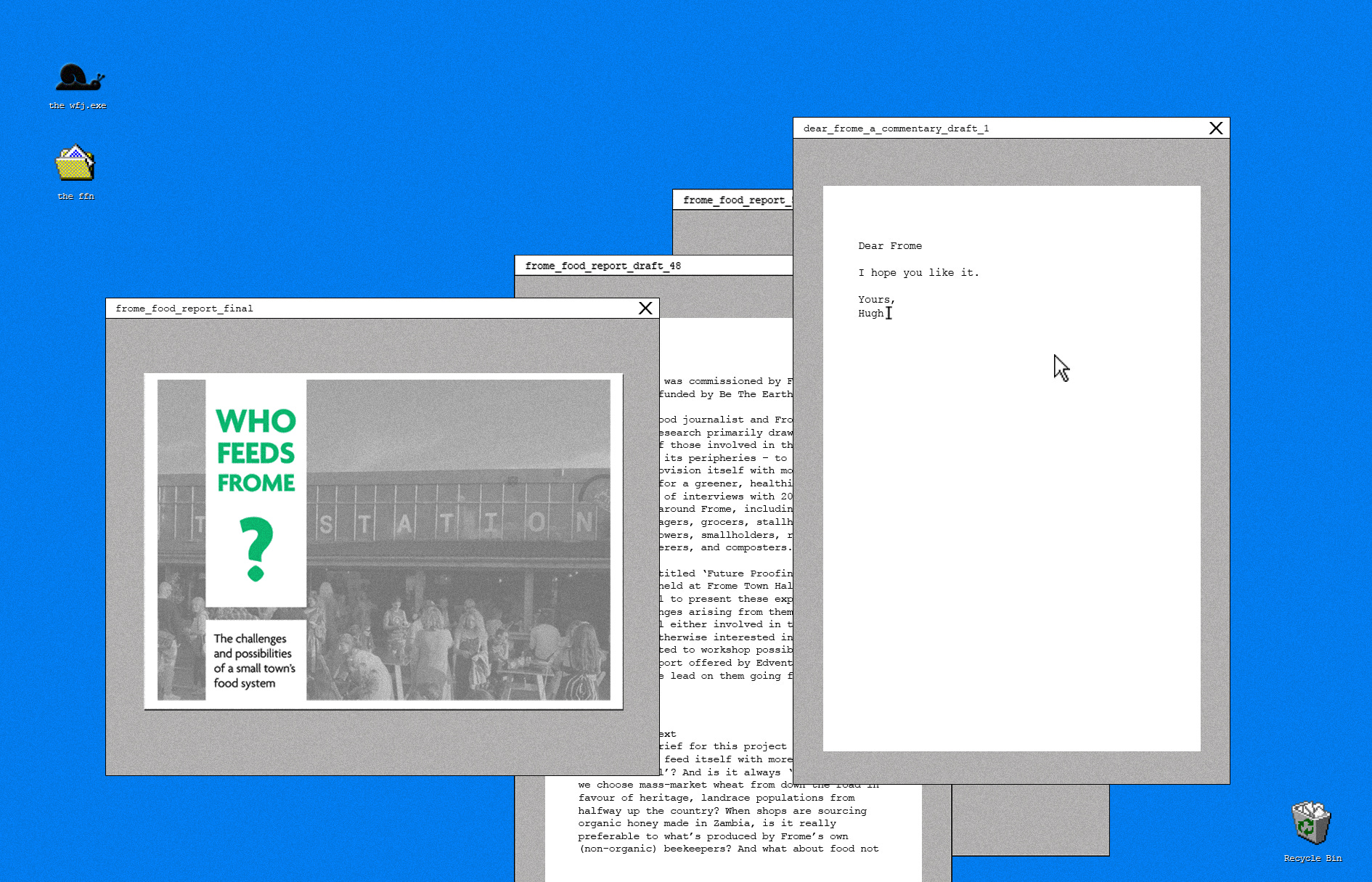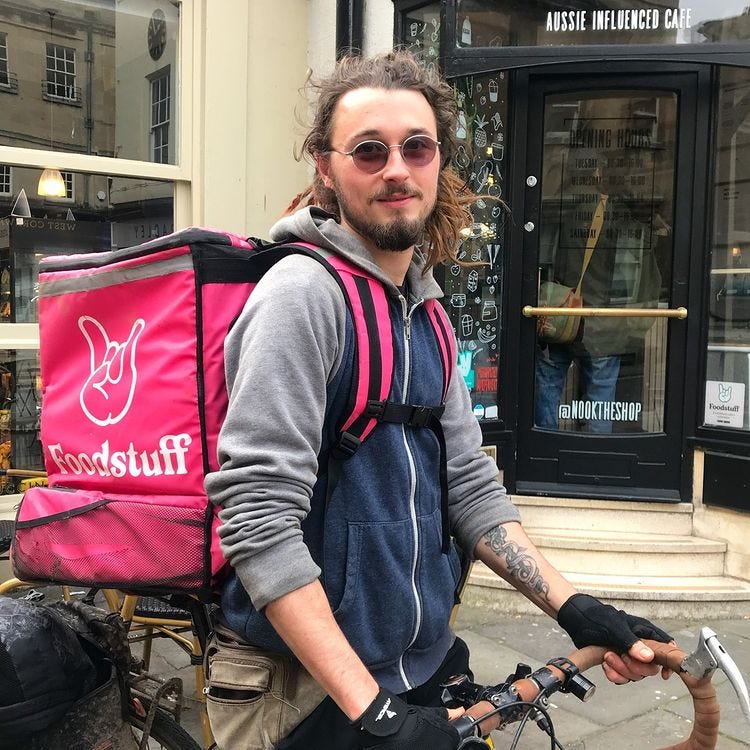A greener future for food in Frome [WFJ #7]
I author a new report detailing how we can make Frome’s food system more sustainable
In May 2021, Frome Town Council asked me, a local food writer and journalist living in Frome, to file a report on what food was grown locally in the area, and whether the town could or should be provisioned with more of it.
But the report evolved to be about more than just food miles. Since the motivation for the research was to do with the climate emergency, and that sourcing food from further afield was perhaps not playing into an appropriate response to that emergency, the angle hinged more on enhancing awareness of, and helping support, those in the local area bringing sustainable food to market.
Which went beyond the obvious suspects. The 20-odd people I interviewed included producers, processors, butchers, grocers, and bakers. But also academics, procurement experts, composters, marketers, stallholders, market managers, and restaurateurs.
Many of whom now make up the nascent Frome Food Network – a collective looking to strengthen the connections between its members, but also the connections between its members and Frome citizens.
So what’s probably important is not so much the report itself, but what it will help inform and inspire. And has already helped inform and inspire. Like the food network, the newsletter you’re reading is another manifestation of the report and its findings.

I guess with more time, manpower, and funding, this report could have been 50 pages long, incorporating processors such as abattoirs and dairies, or covering the intricacies of soil health and agricultural emissions.
But we had our limitations, and I think the report still addresses, or at least recognises, some of the most important questions around food in Frome. Like how do we provision schools with local, organic food? How do we make nutritious food available to low income households? What can be done about the general disconnect between local producers and residents?
Without going into too much of a disclaimer, and in the vein of those commentaries you get on DVD bonus features, here are some things I couldn’t say, or didn’t have the space to say, in Who Feeds Frome? The challenges and possibilities of a small town’s food system.
It’s not essential, but the following will make more sense once you’ve had a look at the report. Find it here.
I.
I’m grateful for the funding we got from Be The Earth to support the research, and the people who helped push for that funding. Worth saying though that as the budget was relatively slim, the majority of the research was qualitative rather than quantitative.
Local food researcher Elise Wach produced some brilliant reports to do with local food systems. Like this one about how food grown in the South West could adapt to climate change.
Another local food researcher, Dan Keech, made some good points that ultimately didn’t fit into the report, but highlighted just how complex the local vs non-local food debate is. Relying on local and indigenous fruit rather than bananas may be better from an ecological perspective, for example. But is that fair on ethnic groups who regard it as a staple?
The pandemic effectively instigated Frome Town Council’s initial research around food producers in June 2020, which led to this research. Covid, however, doesn’t make up a large part of the final report, which I think is telling. As Owen from Penleigh told me, at the start of the pandemic, they were hailed as heroes. Now? Business is much quieter and supporting local businesses has taken more of a backseat.
II.
The prospect of getting more food from small, local producers into schools, hospitals, prisons, and other public entities cannot be understated. And the South West is currently the most fertile region for getting it done. For a bit more background, see this piece I wrote last year.
Supermarkets are more and more operating on a knife’s edge, and, increasingly, producers are no longer willing to put up with it. Perhaps the ideal model is one where farmers own the route to market (whether it be the shops selling their produce, delivery company, etc) as a lot of them are leaning that way already, as is the case with veg / meat boxes. As mentioned, UK farmers would rather supply local food hubs (much like the one in Frome) as they give them a fairer price for their product, and are a better way to connect with their local audience.

Speaking of routes to market, the ethical online supermarket Farmdrop went bust just before Christmas, leaving many producers in the South West suddenly without an important buyer. At least one producer reported losing about half their regular income overnight. Local producers affected include Fernhill Farm, Ivy House, Sharpham Park, Longman's, Nutcessity, Somerset Charcuterie, Somerset Cider Brandy, and Bath Soft Cheese. More support for their produce would, hopefully, help make up for their losses.
‘Not stepping on anyone's toes’ was a theme coming up a lot in interviews. I get that it’s a matter of helping each other, and not competing for the sake of it, but perhaps there are some systems and initiatives in place – however well-meaning – that need supplementing, corralling (or even replacing) to better serve the community.
What're your thoughts on the report? Drop 'em in the comments at the end
III.
As much as I love restaurants, for the most part it is difficult to suggest someone take up a career in them. Low pay, long hours, and hot, heated environments make hospitality a stressful occupation. And the labour shortages go to show that. Perhaps the Asma Khan approach is the way forward, where exec chefs are on the same salary as the pot-washers, rents are paid as a percentage of turnover, work is on balance with family life, and bullying and harassment gets the zero tolerance treatment. If a business can’t ensure such things are in place, then they probably shouldn’t open at all. This also goes for how restaurants should operate for their customers in these new and no longer ‘novel’ times in order to run as sustainable businesses, even if that means having to re-evaluate or diversify their food service format.

I didn’t manage to share this kind of recognition in the report, but Rye bakery, though not perfect (£8 bacon sarnies take a bit of explaining, which I’d like to attempt at some juncture), is the shining light in how a local food business could (or even should) function. They source from Ivy House, Fernhill Farm, Girls Who Grind, and a load of other producers from the area. And have themselves supplied the likes of Osip, Moo & Two, The Griffin, and The High Pavement. Now they have their own farm, and their own mill, and – with the help of the SW Grain Network – their own grain to feed the mill to bake their bread.
As great as they are, Vallis Veg get all the attention when it comes to local veg box schemes. Others arguably as good, such as Moonacre and Root Connections, deserve just as much custom (and don't have the same kind of waiting list). To a greater degree, there is something to be said about national schemes such as Riverford. Again, while they hold a lot of the right principles, the more successful they are, the more they take away from smaller, more localised veg box set ups.
IV.
Unsurprisingly, there’s no catchall solution for providing nutritious, delicious, local food accessible to those on low incomes. But the commodification of food has, while making it cheap, de-valued food. This is why a 20p salad bag is more likely to be left neglected at the back of the fridge than one that cost £1.20. Somewhat superficially, idolising food makers and sellers as messiahs, as what happened during the pandemic, increased the perceived value of their services, therefore making people more likely to want to support and purchase from them, which is why they did so well during those novel times. I have no hard proof for all this – just a feeling.
Somehow, mobile phone contracts, the average for which is now almost £50 per month, have a higher perceived value than local, nutritious food. Also, food gets a lot of stick for being ‘expensive’, but other living costs, such as rent, don’t receive the same resistance. The cost of housing is, like food, tied to the artificially high cost of land. But there are a few things resembling solutions – like what Chris Smaje and co. are demonstrating over at Vallis Veg.
V.
It was due to survey fatigue (the council had been helping with multiple surveys across town) that we never found a good time to conduct a food-focused consumer survey.
The nascent food network mentioned towards the end is coordinated by me. We currently have 70 members – most of which are stakeholders in the local food system – on board. If you’re another one of them, you might like to join. Through Future Shed, we share skills, contacts, and support, holding monthly networking and discussion sessions once a month.
Similarly, if there are any ideas in that table you’d like to help lead or support on, email me. This might not be obvious, but that table of ideas is very preliminary – many of those projects are a long way off coming to fruition, and some might not ever unless the right person steps up to drive them.
The Deliveroo issue goes deeper than simply charging a high commission. At least in cities and bigger towns, it has become a powerful restaurant discovery platform. What this means is, if you’re not on it, you’re at a huge disadvantage to the other local restaurants that are. And if you are on it, you’re getting screwed over by that 30%. As for how all this affects Frome, see WFJ #2.
No overstatement – the free support offered at Edventure and through Future Shed is utterly brilliant. Not only were they great in helping host the event/workshop, but they’ve provided or helped provide funding, development, and marketing advice for the Frome Food Network project and its members, as well as a regular meeting and co-working place.
I hope the report will, at the very least, get some conversations started surrounding local food. It has brought to light some huge challenges, like shared delivery and procurement networks, and the plight of the highstreet. The best thing it can do, perhaps, is mobilise groups and individuals into addressing some of these issues it describes, even if that means something small, like switching from a nationwide veg delivery scheme to a hyperlocal one. The research has certainly proven enough to me – enough, that is, to start building a local food collective, and this newsletter.





What would you like to see as part of Frome's food future?